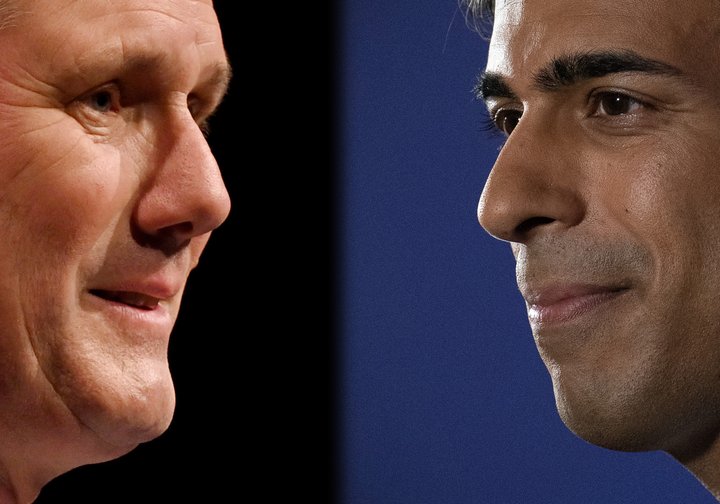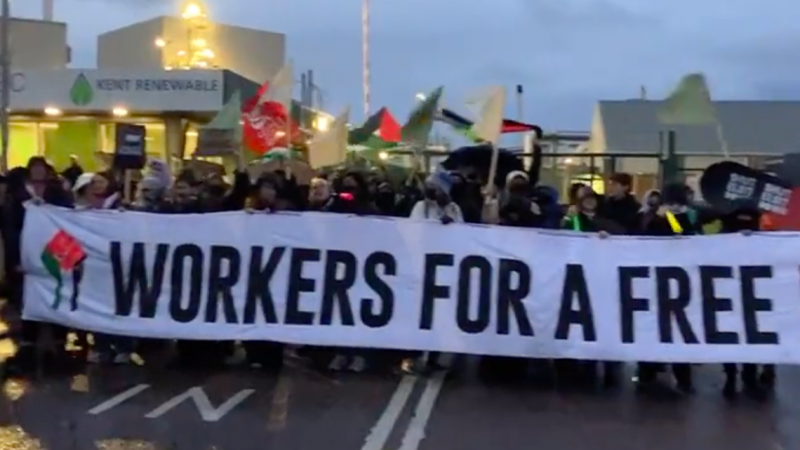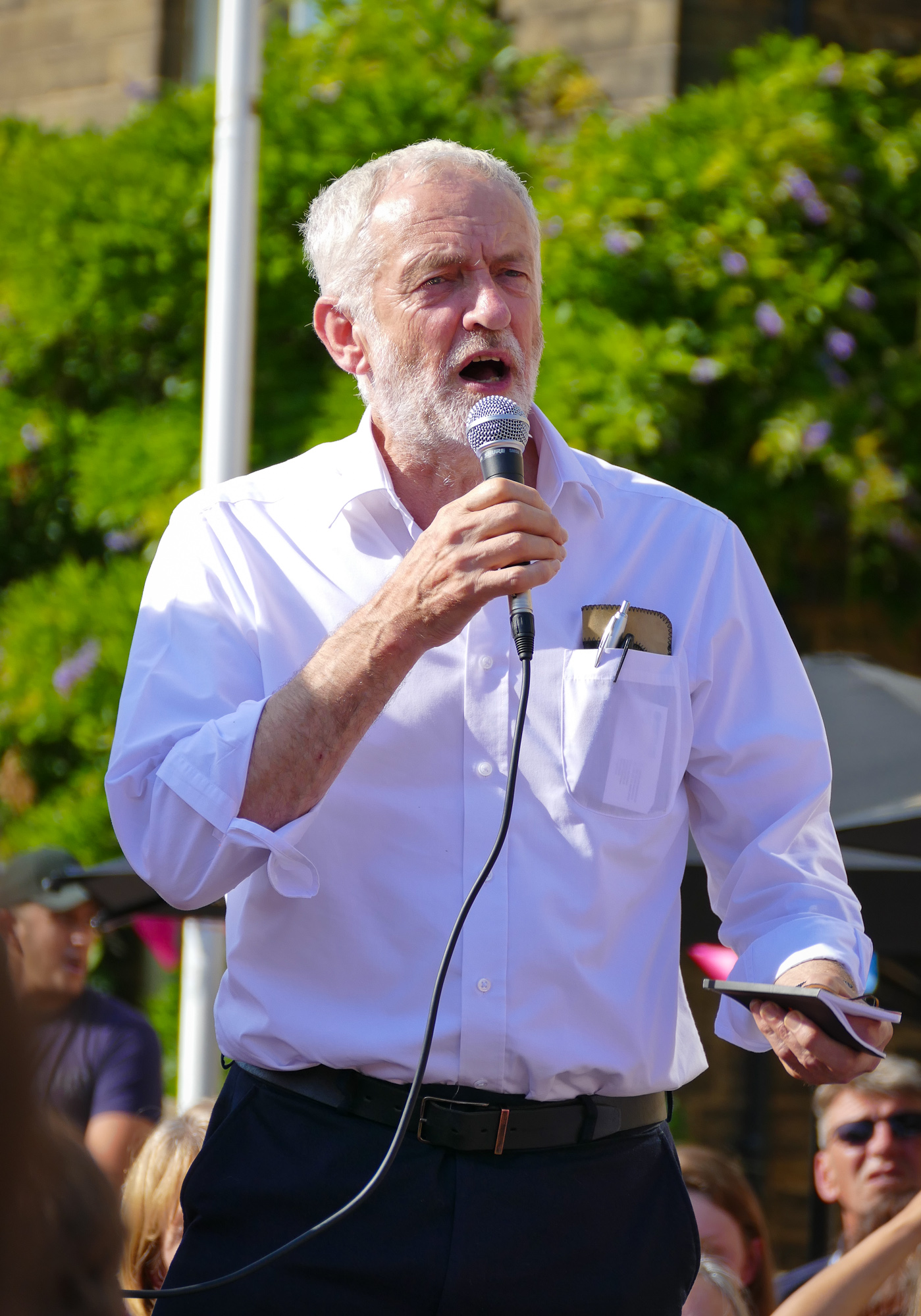Where Labour and the Tories got their money from in 2023
Original article by Ethan Shone republished from Open Democracy under a Creative Commons Attribution-NonCommercial 4.0 International licence.

| Leon Neal & Carl Court/Getty Images
Labour’s cash from private donors now dwarfs donations from unions, while the Tories got their biggest bung ever
Britain suffered a bleak economic landscape in 2023, with wages stagnant and costs rising across the board, but political donors and the parties they give to seem to have been unimpacted. All parties declared more than £93m in total compared with £52m in the previous year. And the cash looks set to keep pouring in ahead of the general election, which could take place as soon as May – although our money is on a November poll.
The Conservatives received the most donations by far, raking in £44.5m in cash, compared with Labour’s total of £21.6m, £6m for the Liberal Democrats, £610,000 for the Green Party and £255,000 for Reform – who now have their first MP in the form of ‘Red Wall Rottweiler’ Lee Anderson. The SNP registered only £76,000 cash donations in 2023, with £50,000 from the estate of a donor who passed away some years prior.
In addition to this, parties received non-cash donations – for things like premises, staff costs, sponsorship, consultancy services and more – worth £4.2m in total. Other regulated recipients like Labour Together, The New Conservatives, Labour First, and the Carlton Club Political Committee, took in £2.5m – these are campaigning organisations affiliated to political parties but legally separate from them, and often provide financial support to a particular faction within a party.
We’ve had a closer look at some of the underlying trends behind the numbers and picked out a few key points to look out for in the months ahead, based on what these donations tell us about the state of play in the two main parties.
Labour’s reliance on companies and individuals over trade unions
Much has been made of Labour’s increasingly close relationship with big business and the wealthy under Keir Starmer. Supporters of the party leadership argue that Labour has to be able to compete with the spending power of the Conservatives in the general election, and so has to look beyond the traditional funding source of the trade union movement toward people and businesses with deep pockets. Critics, however, might suggest that the interests of the trade union movement and the interests of those with the deepest pockets may not accord.
The concern among those of the latter view is that, as donations from the wealthy come to represent a larger proportion of the party’s war chest, there could be a shift in policy in that direction. Dark Arts has already reported on the access and influence enjoyed by corporate lobbying firms who employ Labour candidates to connect their clients with senior party figures. I’ve also written for openDemocracy about the millions that have poured into the party from bankers and financiers under Starmer. And our analysis of donations data for 2023 shows another potentially concerning trend for those worried about a corporate takeover of the party.
Of the £21.5m in cash received by the party in 2023, just £5.9m came from the trade union movement, compared with £14.5m from companies and individuals – a huge increase on the previous year, and indeed more than in the three previous years of Keir Starmer’s leadership combined. As trade union contributions have dipped slightly, from around £6.9m in 2020 and 2021 to £5.3m in 2022, donations from businesses and individuals have soared: they totalled £2.3m in 2020 and rose to £3m in 2021 and £7.6m in 2022 before nearly doubling last year.
Around £10m of this total comes from just four sources: Gary Lubner (£4.6m), David Sainsbury (£3.1m), Fran Perrin (£1m) and Ecotricity (£1m), the green energy firm owned by prominent eco-activist Dale Vince. This means that just two individuals gave the Labour Party more money last year than all the trade unions combined.
Lubner is the former CEO of Belron, a global firm specialising in vehicle glass repair. He has been donating to the party since meeting shadow chancellor Rachel Reeves at a dinner hosted by the big-four consultancy firm PwC in 2021. Sainsbury – of supermarket fame – has been an on-off Labour donor for decades, forging a close relationship with the party during the New Labour years when he got a seat in the Lords and served as a science minister. His daughter, Fran Perrin, was an adviser in Tony Blair’s Downing Street.
Including trade unions, there were 114 donors who gave £25,000 or more last year, while the overall average sum donated over the year was £111,499.
Tories in need of new funding sources ahead of GE
It is perhaps an indictment of the British political system that two of the largest individual donors to political parties last year were both men with the last name Sainsbury. David Sainsbury’s contribution to Labour was dwarfed by the £10m left by his cousin, Tory peer John Sainsbury, to the Conservatives in his will – the largest single donation ever received by the party.
Of the £44.5m in cash received by the Conservatives last year, more than £20m came from two sources: John Sainsbury and Frank Hester, an IT entrepreneur from Leeds who has given £5m personally and another £5m through his firm, The Phoenix Partnership. Hester’s firm has profited from public sector contracts and his ties with the party are under heightened scrutiny following the publication of an investigation by the Guardian that revealed he had said former Labour MP Diane Abbott made him “want to hate all black women” and should be shot.
A further £11.3m came from five individuals:
- Mohamed Mansour, Egyptian-born billionaire who controls the behemoth conglomerate Mansour Group, which has interests in real estate, finance, retail and tech: £5m
- Graham Edwards, co-founder of one of the largest private companies in the UK, Telereal Trillium, which owns thousands of properties and approximately 60 million square feet of land: £2m
- Amit Lohia, son of billionaire petrochemical and fertiliser tycoon Sri Prakash Lohia, chair of Indorama: £2m
- Christopher Barry Wood, founder of biotech firm Medannex: £1.3m
- Alan Howard, hedge fund manager who co-founded Jersey-based Brevan Howard and has significant interests in crypto-currency: £1m
Even without the mega-donation from John Sainsbury, the party comfortably brought in more than Labour last year, and plans pushed through recently by the government raising the amount that political parties can spend at a general election have been widely seen as a sign the party still believes it can leverage its financial pull to good effect against Starmer’s Labour.
However, when the one-off £10m donation is discounted, the party’s fundraising efforts slowed down significantly in the latter half of last year. In the first six months of 2023 the party received £20.6m, compared with just £12m in the second half of the year. Without the £10m from Lord Sainsbury, the party would have taken in just £3m in the third quarter, a huge drop from Q2 (£9.2m) and Q1 (£11.4m).
This might suggest that, at least into the latter portion of last year, the Conservatives were not planning on holding an election in the early portion of 2024, as we would expect to see an uptick in fundraising in anticipation of that.
Overall, there were 286 donors who gave the Conservative Party £25,000 or more last year. The average Tory donor gave £90,811 over the course of the year.
If you’re concerned about the influence of money in politics and want to support our reporting in this area, sign up to our newly-launched newsletter, The Dark Arts, on Substack.
Original article by Ethan Shone republished from Open Democracy under a Creative Commons Attribution-NonCommercial 4.0 International licence.

